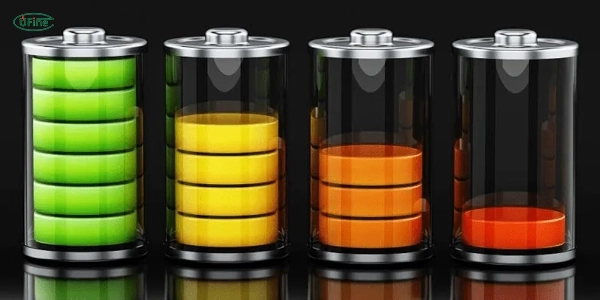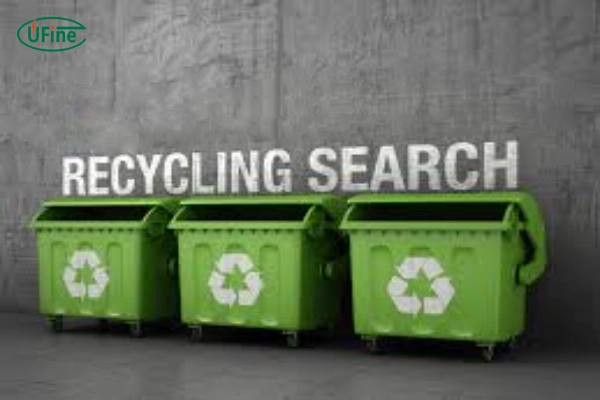Do batteries expire? Batteries are essential to our daily lives, powering various devices, from smartphones and laptops to remote controls and toys. In this article, we will explore the concept of battery expiration and shed light on the factors that contribute to the lifespan of batteries. So, let’s dive in and find out if batteries truly expire or can last indefinitely.
Part 1. Definition of battery expiration
Battery expires when a battery’s performance significantly declines, rendering it less effective or unusable. While batteries do not have a clearly defined expiration date like food products, they deteriorate over time due to various factors.
Part 2. Why do batteries expire?
- Chemical Reactions: Batteries expire due to chemical reactions happening inside them. These reactions involve the materials inside the battery breaking down over time, which decreases its ability to hold and deliver power.
- Self-Discharge: Even when not in use, batteries slowly lose their charge over time due to a process called self-discharge. This happens because the chemicals inside the battery react, causing a gradual loss of stored energy.
- Usage: Using a battery more frequently speeds up its expiration. Every time a battery is charged and discharged, its chemical components undergo wear and tear, eventually declining its performance and lifespan.
- Environmental Factors: External factors such as temperature, humidity, and exposure to moisture can also contribute to the expiration of batteries. Extreme conditions can accelerate chemical reactions within the battery, causing it to degrade more rapidly.
- Storage Conditions: Leaving batteries in high-temperature environments or exposing them to direct sunlight can hasten their expiration due to improper storage conditions. Storing batteries in a cool, dry place can help prolong their lifespan.
- Quality of Materials: The quality of the materials used in constructing batteries also plays a significant role in determining their lifespan. Lower-quality batteries may expire more quickly than higher-quality ones due to inferior chemical compositions or manufacturing processes.
- Age: Like most products, batteries also degrade with age. Even if unused, the passage of time alone can cause batteries to lose their ability to hold a charge effectively, ultimately leading to expiration.
- Overcharging and Over-discharging: Subjecting batteries to overcharging or over-discharging can cause damage to their internal components, leading to premature expiration. It’s essential to use chargers and devices compatible with the specific type of battery to avoid these issues.
Part 3. Expiration of different battery types
Different battery types have varying lifespans and expiration characteristics. Let’s take a closer look at some commonly used batteries:
Alkaline Batteries
Alkaline batteries, commonly found in household devices, have a shelf life of around 5 to 10 years. However, their lifespan can vary depending on usage patterns and environmental conditions. As alkaline batteries age, their voltage output gradually decreases, leading to diminished performance.
Nickel-Metal Hydride (NiMH) Batteries
NiMH batteries, often used in rechargeable electronic devices, have a lifespan of approximately 2 to 7 years. Users can recharge these batteries multiple times before their performance starts to decline. However, overcharging or deeply discharging NiMH batteries can shorten their lifespan.
Lithium-Ion (Li-ion) Batteries
Lithium-ion batteries, widely utilized in smartphones, laptops, and electric vehicles, typically have a lifespan of 2 to 10 years, depending on usage and charging patterns. These batteries are known for their high energy density and longer cycle life compared to other battery types. However, their capacity gradually decreases over time, reducing battery life.
Part 4. Lithium battery recycling
Importance of Battery Recycling
Battery recycling is paramount due to improperly disposed batteries’ environmental impact. Batteries contain various toxic substances such as lead, mercury, and cadmium, which can leach into soil and water bodies, causing harm to ecosystems and human health. Recycling batteries helps prevent these hazardous materials from polluting the environment.
Furthermore, battery recycling contributes to the conservation of valuable resources. Batteries contain materials like lithium, cobalt, and nickel, which manufacturers can extract and reuse to produce new batteries. Recycling batteries reduces the need for raw material extraction and minimizes the ecological footprint associated with battery manufacturing.
Lithium Battery Recycling Process
During the recycling of lithium batteries, recyclers follow several key steps:
1. Collection and Sorting
The first step involves collecting used lithium batteries from various sources, such as electronic waste disposal centers or designated collection points. These batteries are sorted based on size, chemistry, and other relevant factors.
2. Battery Discharge
Before further processing, the collected lithium batteries undergo a discharge process to ensure no remaining electrical charge. This step minimizes the risk of accidents or mishaps during subsequent stages.
3. Mechanical Shredding
After discharge, workers mechanically shred the batteries into smaller pieces. This shredding process facilitates the separation of different battery components and materials.
4. Chemical Leaching
The shredded batteries undergo a chemical leaching process where valuable metals, such as lithium, cobalt, and nickel, are extracted. Recyclers typically achieve this through various chemical reactions and treatments that aim to separate and recover these valuable resources.
5. Purification and Refining
The extracted metals are then subjected to purification and refining processes to ensure their quality and remove impurities. This step prepares the metals for reuse in producing new batteries or other applications.
6. Disposal of Residual Materials
After metal extraction, the remaining materials, such as plastics and electrolytes, undergo further treatment for proper disposal or potential reuse. We handle these materials carefully to minimize environmental impact and ensure compliance with waste management regulations.
7. Recycled Material Utilization
Manufacturers can utilize the recovered metals in various ways. For example, companies can use them to manufacture new batteries, electronic components, or other industries that require these valuable resources.
8. Environmental Compliance
Strict adherence to environmental regulations and safety measures is essential throughout lithium battery recycling. This ensures that the recycling operations do not cause harm to the environment or pose risks to human health.
Benefits of Lithium Battery Recycling
Lithium battery recycling offers numerous advantages, both environmentally and economically. By recycling lithium batteries, we can significantly reduce the release of hazardous materials into the environment, safeguarding ecosystems and human health. The recovery of valuable metals through recycling also reduces the need for extensive mining operations, conserving natural resources and minimizing environmental disruption.
From an economic perspective, lithium battery recycling presents a promising industry with job creation potential. The demand for lithium batteries continues to rise, and establishing efficient recycling processes can help meet the growing demand for raw materials while generating employment opportunities in the recycling sector.
Part 5. Conclusion
In conclusion, batteries expire due to chemical reactions and environmental factors. Different battery types have varying lifespans, and their performance gradually declines. Recycling lithium batteries is crucial for ecological preservation and resource conservation. Recycling these batteries can mitigate the adverse effects of improper disposal and promote the reuse of valuable materials. Embracing battery recycling is a significant step toward building a sustainable future.
Related Tags:
More Articles

LiPo Battery Discharge Rate Guide & Calculation Tips
Understand LiPo battery discharge rates, C-ratings, and how to calculate max current. Essential guide for RC, drones, and electronics users.
High‑Capacity 3S LiPo Batteries: 5000 mAh vs. 10000 mAh
Compare 3S LiPo 5000mAh vs 10000mAh batteries by weight, power, and use. Find the best fit for your drone, RC car, or boat setup.
Top 5 Applications for Small 3S LiPo Batteries
Small 3S LiPo batteries power drones, RC gear, wearables, and robotics with high energy and low weight. Making them ideal for compact electronics projects.
Building and Charging Your Own 3S LiPo Pack: A Step‑by‑Step Guide
Learn how to build, balance, and charge a 3S LiPo battery pack safely at home with this complete DIY guide for hobbyists and beginners.
How to Choose the Right LiPo Battery Plug Type?
Discover the best LiPo battery plug types, how to choose them, and expert tips for safe usage, soldering, and maintenance.





